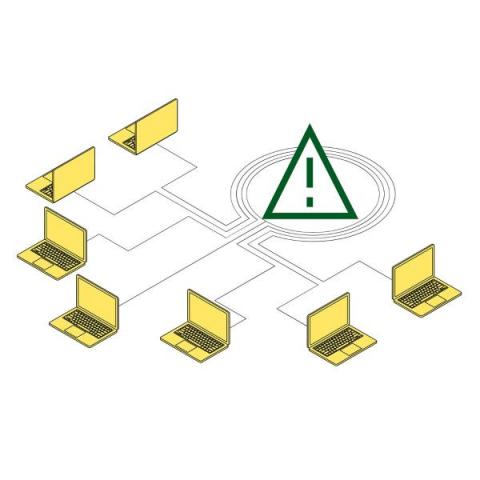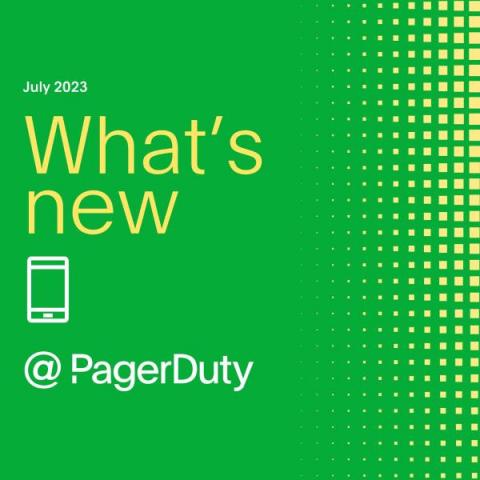Operations | Monitoring | ITSM | DevOps | Cloud
Operations Management
The latest News and Information on IT Operations Management and related technologies.
How to Ace Your Services with PagerDuty
It’s finals week for the US Open, one of the most celebrated sports events in the world. Tennis is my favorite sport to watch as I’m fascinated by the strength, composure and endurance each player displays while standing by themselves on the court, sometimes during incredibly long matches – the current record is 11h05.
Building Trust with our Customers with PagerDuty for PagerDuty: Crisis Response Management Operations
A critical partner in your supply chain just went down. An earthquake just hit your main operations hub. Breaking news about your organization just hit social media. Bad news first—there’s always another crisis or existential threat to your organization on the horizon. If you don’t have an established Crisis Response process and team in place, you’re running a high risk of failure.
What's New: Enhanced PagerDuty Analytics for Faster Insights and Smarter Recommendations
Data has become the lifeblood of businesses, empowering organizations to make more informed decisions, drive innovation, and gain a competitive edge. McKinsey touts the benefits of adopting data-supported capabilities, referring to the various ways data is utilized to enable and enhance the functioning of an organization.
3 New Updates to the PagerDuty Scheduling Experience
With the acceleration of cloud and digital transformation initiatives, enterprises are under pressure to adopt more agile, DevOps practices to be responsive to the business. But the increased complexity of digital systems and reliance on digital business only makes the cost of incidents more expensive.
PagerDuty Recognized in 12 2023 Gartner Hype Cycle Reports
While most of the world knows us for on-call management, we’ve been hard at work expanding the PagerDuty Operations Cloud to other areas like AIOps, Process Automation and Customer Service Operations (CSOps). Underscoring our commitment to redefining digital operations management for our customers, our commitment to R&D and delivering the best products and platform has resulted in PagerDuty being recognized in 12 distinct 2023 Gartner Hype Cycle reports across nine unique categories.
How to Maximize Time Savings and Reduce Toil During Incident Response
Incidents are a costly burden on businesses. Despite assembling the right people and teams, the manual work, tool setup and prolonged tasks can negatively impact customer experience. The need for adaptable processes to address diverse incident types further complicates the situation. This is where the PagerDuty Operations Cloud steps in. It streamlines and automates all the various manual steps in the incident response process.
10 Years of Failure Friday at PagerDuty: Fostering Resilience, Learning and Reliability
In today’s fast-paced and ever-evolving world of technology, failure is inevitable. Organizations should embrace failure as a learning opportunity for how to build and deliver more resilient services. At PagerDuty, we’ve practiced Failure Friday for 10 years now. Failure Friday–a practice inspired by the chaos engineering space–involves intentionally injecting failures into our systems to improve reliability and foster a proactive engineering culture.
What's New in PagerDuty iOS and Android Mobile Applications
The PagerDuty Operations Cloud is your platform for action in critical moments. By harnessing the capabilities of AI and automation, it has the ability to detect and diagnose disruptive incidents, assemble the appropriate team members for prompt response, and optimize your digital operations by streamlining infrastructure and workflows.
Gartner Market Guide: Embedding Automation Into the Enterprise
“Existing workload automation strategies are unable to cope with the expansion in complexity of workload types, volumes and locations driven by evolving business demand, as per Gartner. Digital business is slowed without collaboration and automation inside and outside of IT, leading to siloes of capabilities across business and IT teams.Cost optimization is an evolving challenge, driven by technical debt and requirements to demonstrate business value of investments.”











